Parts and consumables:
- Cloth gloves (optional)
- rags
- Funnel (as needed)
- Coolant Mitsubishi DIA QUEEN SUPER LONG LIFE COOLANT PREMIUM — 0103045
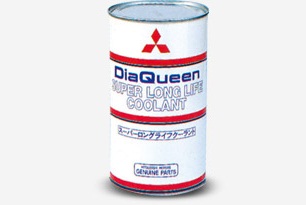
Notes:
Checking the coolant level in the expansion tank of the cooling system should be carried out at each inspection of the car before driving and always in case of engine overheating and the associated release of fluid from the system. Its sharp decrease or increase should be a signal for an immediate check of the engine cooling system.
Use DIA QUEEN SUPER LONG LIFE COOLANT PREMIUM or an equivalent ethylene glycol based coolant that is free of silicates, amines, nitrates and borates and formulated using long life hybrid organic acid technology.
Check with your vehicle dealer for the brand of fluid used in your vehicle. Do not mix liquids of different colors and different manufacturers. If you do not know the brand of the liquid filled in, and the liquid needs to be topped up, replace all the liquid in the cooling system. Only use products from trusted manufacturers. Remember that the use of poor quality coolant leads to costly engine repairs.
The cooling system is pressurized, so before adding coolant, allow the engine to cool for at least one hour after shutting it down.
Mitsubishi ASX coolant is toxic, so be careful when handling it.
1. Park the vehicle on level ground, allow the engine to cool, and open the hood. The coolant expansion tank is located in the front of the engine compartment on the right in the direction of travel of the vehicle. The radiator filler cap is located in the front center.
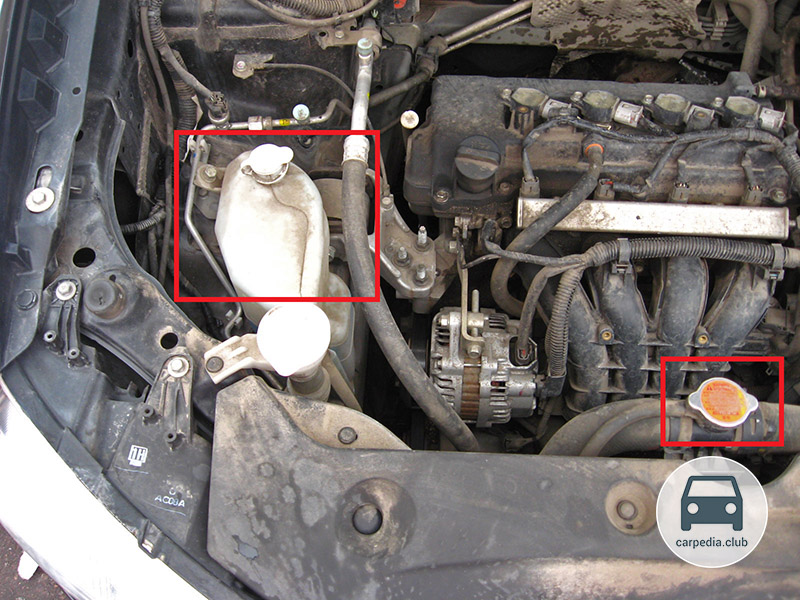
2. Visually check the Mitsubishi ASX coolant level in the reservoir. It must be between the MAX (maximum) and MIN (minimum) marks on the expansion tank. If the fluid level is at or below the MIN mark, coolant must be added.
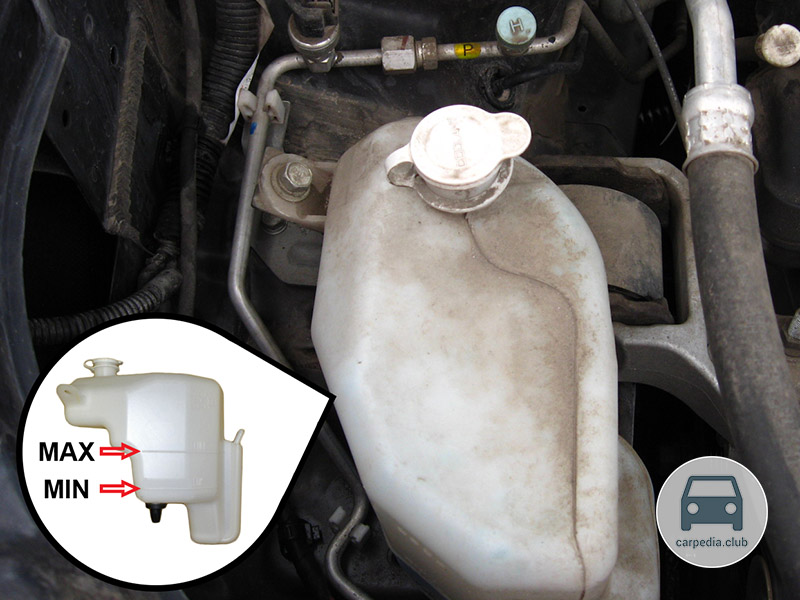
3. To add coolant, first open the expansion tank cap.
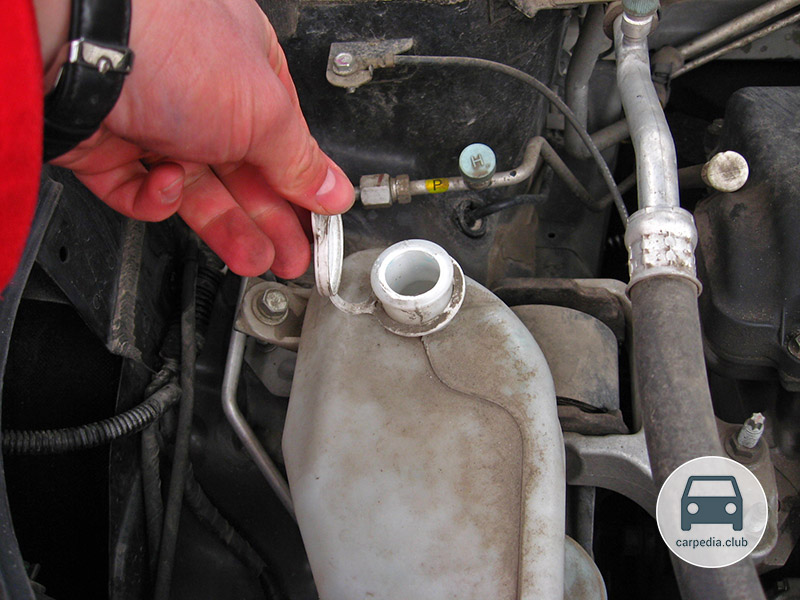
4. Add Mitsubishi ASX antifreeze slightly without bringing the level to the MAX mark.
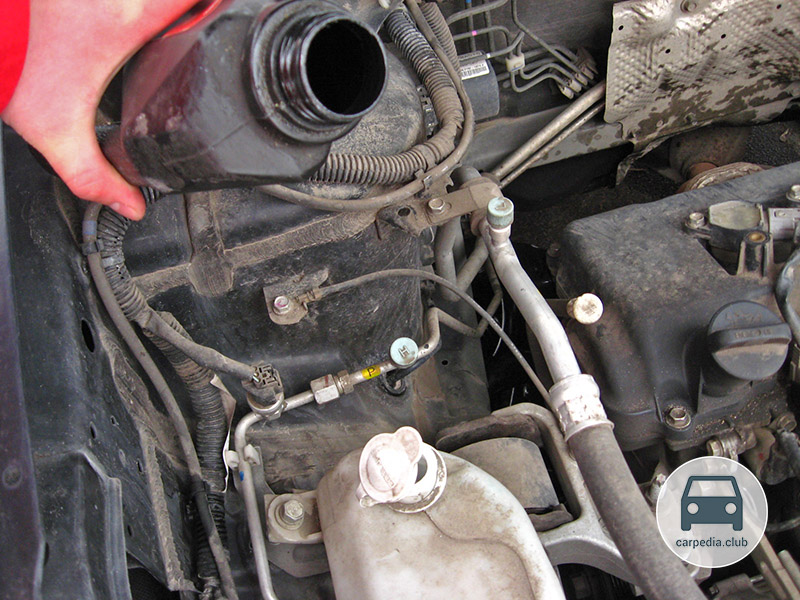
Warning:
Do not pour liquid into the Mitsubishi ASX reservoir above the MAX mark, as the volume of liquid increases when the engine is running. When starting the engine, the expansion tank cap must be closed.
Coolant that has fallen on engine parts or paintwork must be removed with a rag.
5. Close the coolant expansion tank cap tightly. Remove spilled liquid with a rag.
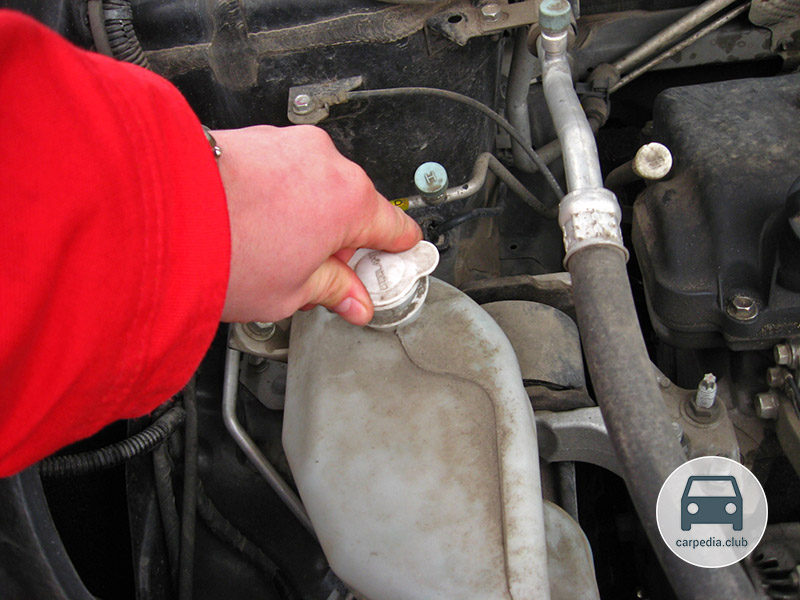
If the coolant in the expansion tank is completely absent, then it is necessary to check its level in the radiator:
1. Without pressing on the top of the radiator filler cap, turn the cap counterclockwise until it stops. In this case, the pressure in the engine cooling system will decrease to atmospheric pressure.
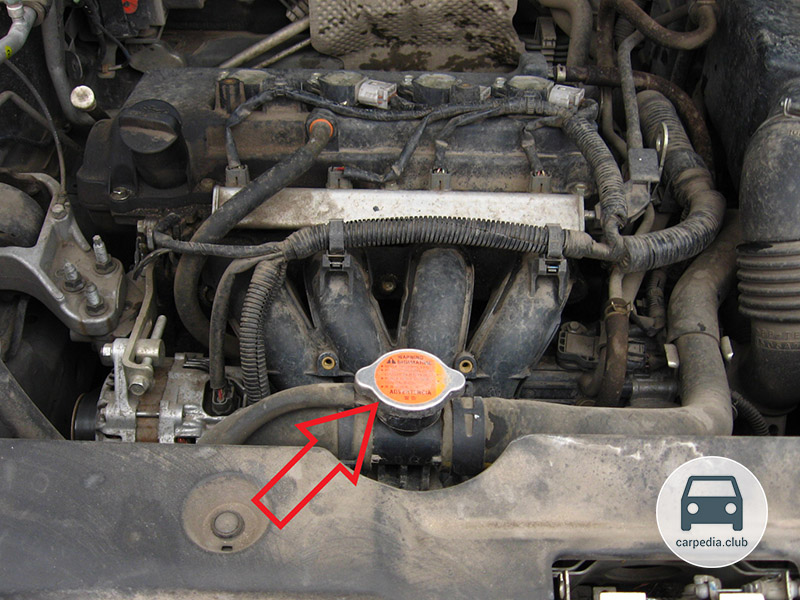
2. Press down on the top of the cover and turn it additionally counterclockwise. Then remove the cap from the radiator neck.
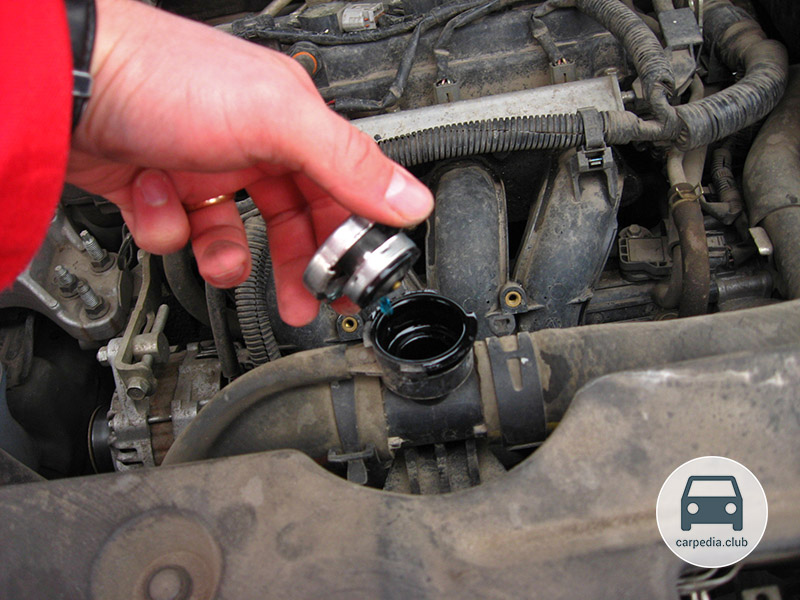
Warning:
Do not open the radiator cap on a hot engine. The cooling system is pressurized and escaping hot coolant can cause severe burns.
3. The coolant level in the radiator should be level with the base of the filler neck. Add coolant to the radiator if necessary.
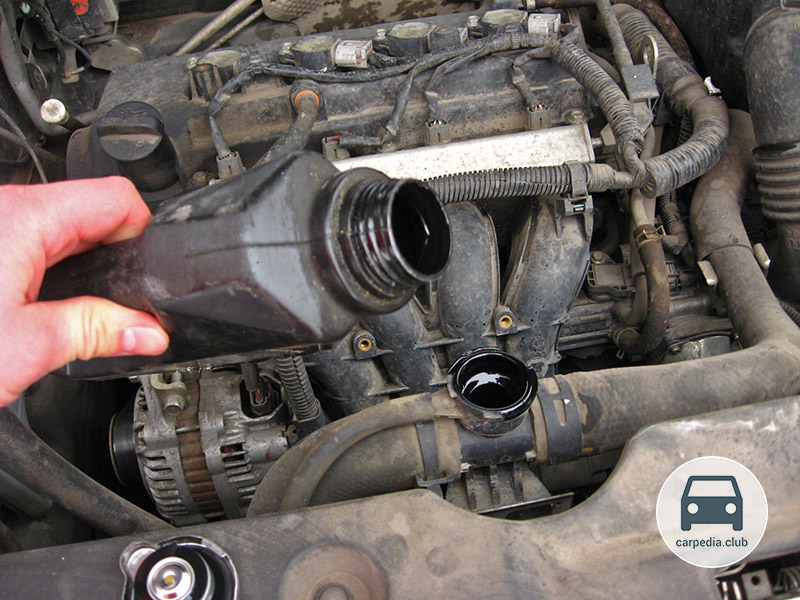
Note:
Add liquid slowly and carefully, trying not to spill it. Spilled liquid should be cleaned up immediately. Spilled coolant can cause damage to engine parts and assemblies located in the engine compartment.
4. Replace the radiator cap. Turn it clockwise until it stops.
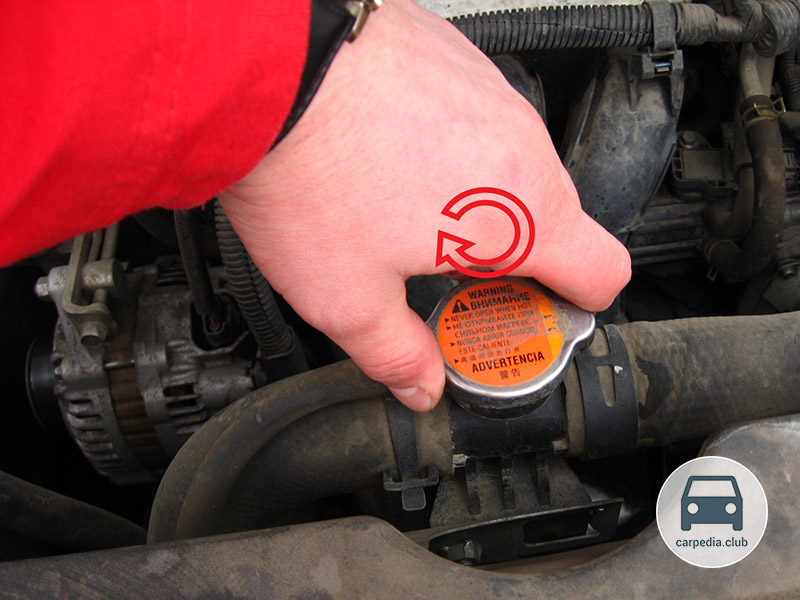
5. Add coolant to the Mitsubishi ASX expansion tank to an average level between the MIN and MAX marks. Reinstall the expansion tank cap (see above).
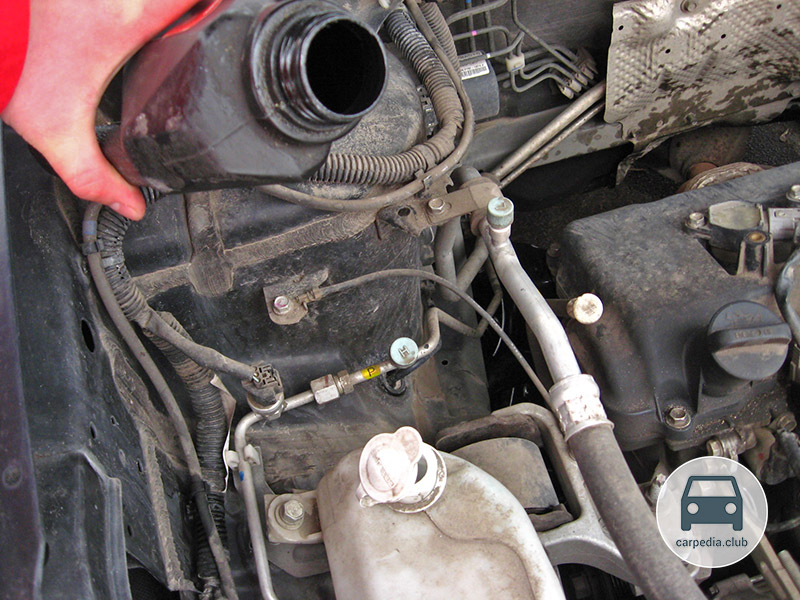
Notes:
When topping up is necessary, use only coolant grades that are approved by the manufacturer's technical departments and provide freeze protection and anti-corrosion protection of the engine cooling system.
If the coolant that you just filled in suddenly suddenly turned brown quickly, it means that you were sold a fake, in which they "forgot" to add corrosion inhibitors. Replace the fluid as soon as possible before it has had time to corrode the cooling system.
If the coolant level in the expansion tank is constantly decreasing, then the engine cooling system is most likely leaking, so it is very important to immediately check its tightness and repair the malfunction.
In order to be able to continue the trip, it is also possible, especially in summer, to top up with clean water. However, after this, it is necessary to bring the concentration of antifreeze to the required level as soon as possible.
Before the onset of the cold season, the concentration of antifreeze should be checked and, if necessary, brought to normal.
The concentration of antifreeze in the coolant depends on the expected ambient temperature:
- above -35 °C: antifreeze concentration 50%;
- below -35 °C: antifreeze concentration 60%.
The article is missing:
- Photo of parts and consumables
Source: carpedia.club
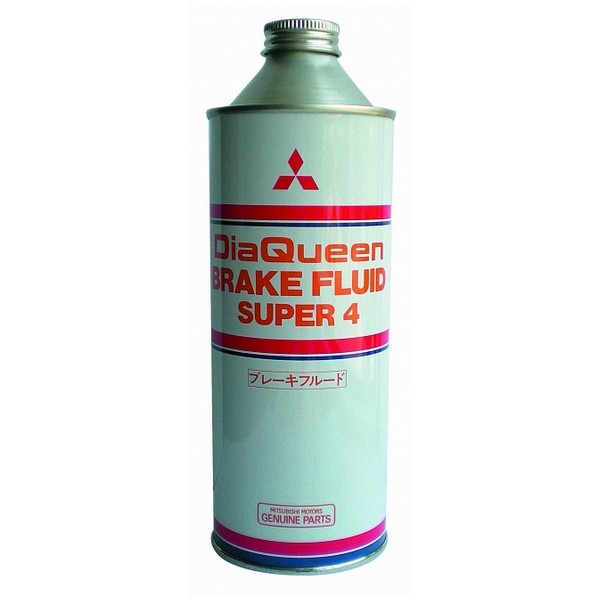
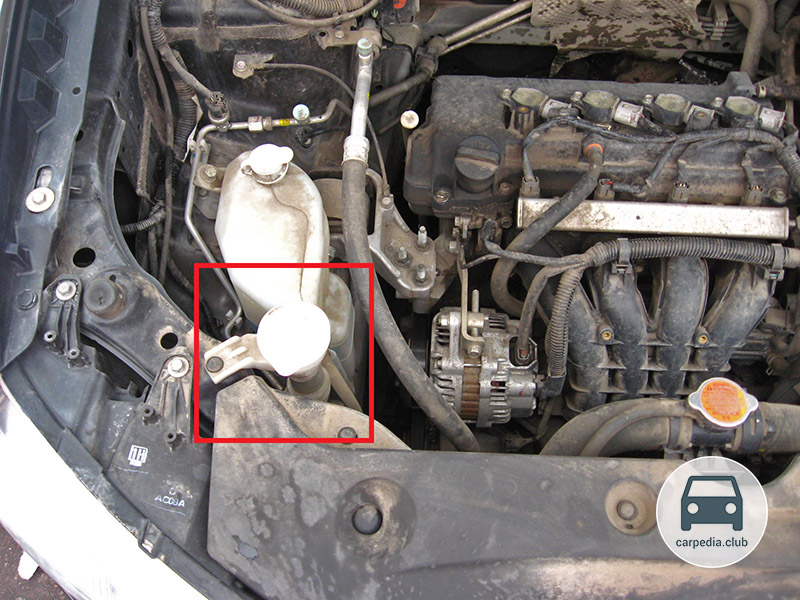
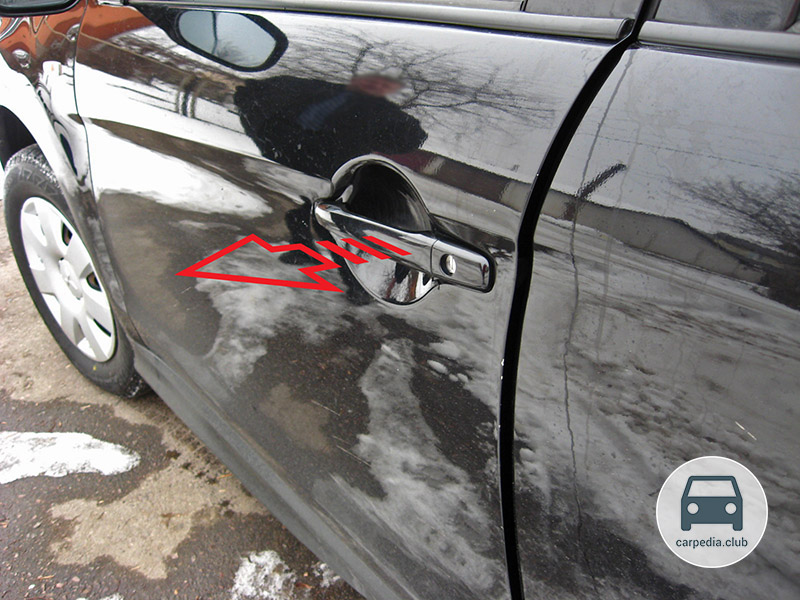
![1 generation [restyling] [2012 - 2016]](/uploads/4abc6123.png)
